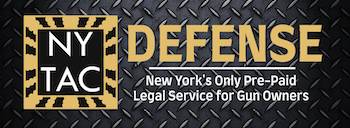Representation.
The Different Levels of Felonies in New York
New York breaks down felonies into five different levels or “classes” from class “A” felonies being the most serious to class “E” felonies being the least serious. New York further breaks down each class into felonies that are considered “violent felonies” and felonies that are considered “non-violent”. The term violent in this case does not have its ordinary meaning. Rather, felonies are defined as being violent in Penal Law §70.02, where Burglary in the Second Degree is considered violent even though it neither involves the use of a weapon or injury and Robbery in the Third Degree being non-violent even though it involves use of force. In addition, “predicate felons”, those with certain prior felony convictions may face enhanced sentences.
What is a Class “A” felony in New York
Class “A” felonies are the most serious felonies in New York and can carry sentences as high as 25 years to life. Class “A” Felonies include Murder and Kidnapping as well as some very serious drug felonies. The minimum sentence for a class “A” violent felony in New York is 15 years to life. However, drug felonies are further broken down into A-I and A-II drug felonies with A-I being the more serious.
What is a Class “B” felony in New York
Class “B” felonies are the second most serious felonies in New York. These felonies can include violent felonies like Rape the First Degree, Robbery in the First Degree and Burglary in the First Degree and non-violent felonies such a Grand Larceny in the First Degree (over $1 million) and certain serious drug felonies. Class “B” violent felonies carry a minimum sentence of 5 years in prison and a maximum sentence of 25 years in prison.
What is a Class “C” Felony in New York
Class “C” felonies represent the middle of the five classes of felonies in New York. On the one hand a Class “C” violent felony carries a minimum of 3.5 years in prison and a maximum of 15 years in prison. However, a class “C” non-violent felony carries a maximum sentence of 5-15 years in prison and the possibility of probation. Examples of Class “C” violent felonies include Robbery in the Second Degree and Burglary in the Second Degree. Non-violent “C” felonies can include drug charges, Grand Larceny in the Second Degree, Criminal Possession of a Forged Instrument in the First Degree and Criminal Possession of Stolen Property in the Second Degree.
What is a Class “D” Felony in New York
Class D felonies are the second least serious felonies in New York and can include certain gun possessions and Robbery in the Third Degree and Burglary in the Third Degree. Most Class “D” felonies are considered non-violent. However, Assault in the Second Degree and some weapons possession charges are considered to be violent offenses. Class “D” Felonies generally do not carry mandatory State prison sentences unless the person that is being sentenced is a predicate felon. Sentences for Class “D” felonies can include sentences of up to 7 years in State prison, sentences of up to 2 and 1/3rd to 7 years in prison for non-violent sentences, sentences in the local jail or even probation.
What is a Class “E” felony in New York
Class “E” felonies are the least serious felonies. However, they are still felonies, still need to be taken seriously and can result in a prison sentence of up to 4 years in state prison. However, there are no minimums for first time felony offenders and a person convicted of a class “E” felony can even receive a sentence of probation or a conditional discharge. Most class “E” felonies are non-violent. The only violent class “E” felonies are attempts to commit violent class “D” felonies such as Attempted Assault in the Second Degree or Attempted Criminal Possession of a Weapon in the Third Degree. N0n-violent class “E” felonies can run the gamut from Criminally Negligent Homicide, Grand Larceny in the Fourth Degree or Criminal Mischief in the Third Degree. A person who is a predicate felon is required to go to prison even on a “E” felony.
What is a Predicate Felon in New York
As previously discussed, the three most important factors in determining the length of a sentence are the class of felony, whether the felony is a violent felony under Penal Law §70.02 and whether the offender meets the definition of a Predicate Felon under New York Law §70.06. A predicate felon is generally someone that was convicted of and sentenced for a felony within 10 years of the commission of the felony that an offender is being sentenced for. In calculating the 10-year period, time spent in jail or prison is excluded. Complications could arise if the prior felony occurred in another state. In that situation, an experienced criminal defense lawyer would need to look at the statute and determine whether the felony in the foreign State would necessarily constitute a felony in New York. Predicate felony status can have drastic consequences for any individual being sentenced on a felony in New York.

















